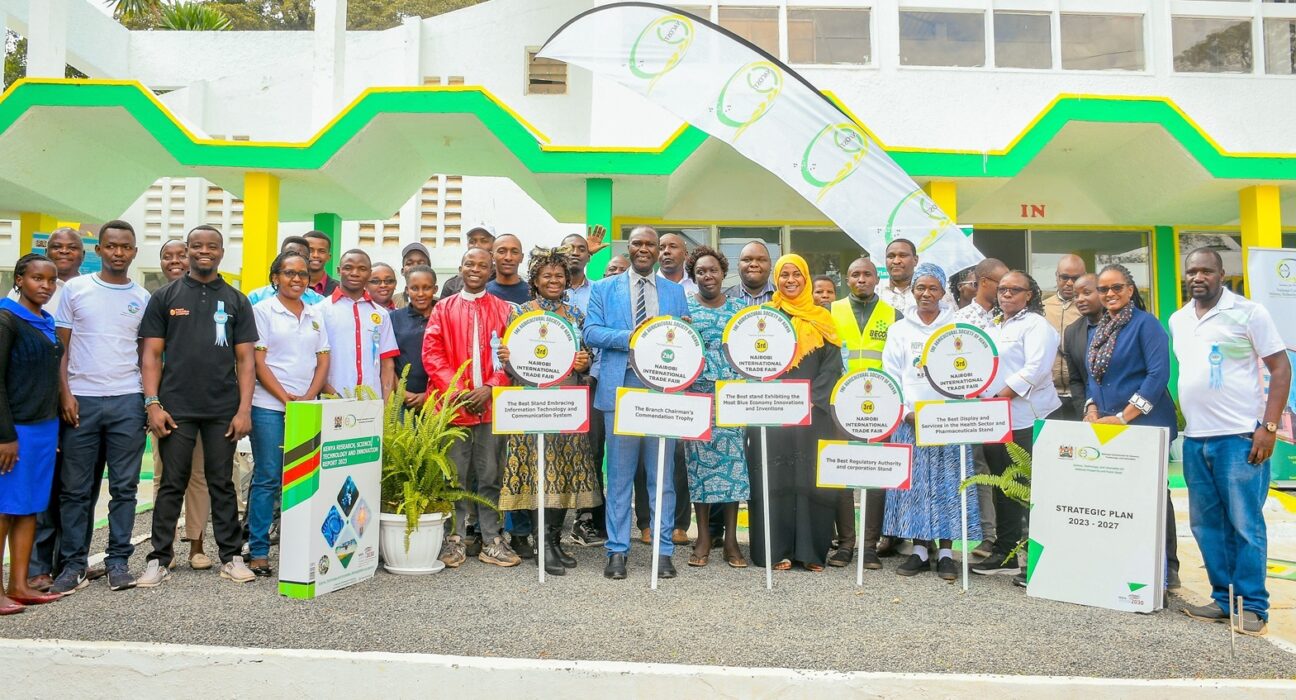In Kenya, researchers are required to secure a research permit from the National Commission for Science, Technology, and Innovation (NACOSTI). This permit is essential for anyone conducting research involving data collection or experimentation within Kenya’s borders, encompassing fields like agriculture, medical sciences, physical sciences, ICT, social sciences, and more. Here’s a step-by-step guide on how to navigate the application process for a research permit through NACOSTI, the organization’s role, and the guidelines to follow for ethical and regulatory compliance.
What is NACOSTI?
NACOSTI, the National Commission for Science, Technology, and Innovation, was established under the Science, Technology, and Innovation Act of 2013. It is a key state organization mandated to ensure the quality, ethical compliance, and regulation of research in Kenya, especially where technology, science, and innovation are concerned. In addition to issuing research permits, NACOSTI advises the government on policies to protect Kenya’s national interests and resources in these areas.
Why You Need a NACOSTI Research Permit
A NACOSTI permit ensures that research activities:
- Adhere to ethical standards and are conducted for the public good.
- Avoid unauthorized data collection and secure sensitive research data.
- Do not duplicate data collection or infringe on national security and interests.
- Encourage quality, innovative research that benefits Kenya’s knowledge base and technological advancement.
Whether you’re a student, professional researcher, or part of a private institution, having a NACOSTI permit safeguards your work’s legitimacy and ensures your research aligns with Kenyan laws and ethics.
Who Should Apply for a NACOSTI Permit?
- Foreign nationals undertaking research in Kenya.
- Kenyans studying abroad conducting research within the country.
- Non-governmental institutions (both Kenyan and foreign).
- Students on educational field assignments in Kenya.
- Private companies looking to conduct market research or surveys.
However, Kenyan government employees and institutions with a Standing Research Clearance from NACOSTI are exempted, as long as research falls under their official duties.
How to Apply for a NACOSTI Research Permit
The research permit application process is straightforward and can be done online via the NACOSTI portal. Here’s how to go about it:
- Register on the NACOSTI Portal
Go to https://research-portal.nacosti.go.ke/ and create a free account. Fill in all personal and project details, and note that the system will guide you through the subsequent steps. - Prepare the Required Documents
Ensure you have the following:- Completed application form.
- Research proposal.
- A curriculum vitae (CV).
- Identity document (ID or passport).
- Affiliation letter from a Kenyan institution (for foreign applicants).
- Ethical approval documents (for research involving human participants).
- Other project-specific documents as detailed in NACOSTI’s checklist.
- Submit the Application for Review
Upload all documents as one PDF file and pay the necessary fee. The Research Coordination Division will forward the application to field experts for assessment. If your application meets all criteria, NACOSTI will issue a research permit. - Submission of Final Research Report
Once your research is complete, submit two hard copies of your research report to NACOSTI and upload a PDF version to their system. Failure to do so will prevent the issuance of permits for future projects.
Fees for NACOSTI Research Permits
For Kenyan Citizens and Institutions:
- Student/Attachment – Ksh 100
- Master’s – Ksh 1,000
- PhD – Ksh 2,000
- Individual Research – Ksh 5,000
- Institutional Research – Ksh 10,000
- Private Companies – Ksh 20,000
For Foreign Applicants:
- Student Attachment – US$ 150
- Master’s – US$ 350
- PhD – US$ 400
- Individual Research – US$ 500
- Foreign Institutions – US$ 1,000
- Private Companies – US$ 10,000
Note: East African citizens pay the same rates as Kenyans, while other African Union members pay double.
Important Regulations and Requirements
Ethical Standards and Approvals
All research involving human participants must meet NACOSTI’s ethical guidelines, which align with internationally recognized standards. For clinical and social research, a letter of ethical approval is required from a local research ethics committee.
Institutional Affiliation
Foreign researchers must affiliate with a Kenyan institution and submit proof of this partnership with their application. Kenyan public institutions approved for research affiliation are available on NACOSTI’s website.
Research in Protected Areas
For work conducted in sensitive ecosystems, such as wildlife reserves or conservation sites, additional permits from agencies managing these areas are required.
Material Transfer Protocols
Research materials, data, and samples must remain within Kenya unless proper authorization for export is granted. For any material transfer outside Kenya, researchers must complete a Material Transfer Agreement (MTA), with appropriate documentation and institutional approval.
Monitoring and Compliance
NACOSTI reserves the right to monitor research progress. Site visits, data inspections, and project assessments may be conducted to ensure compliance with NACOSTI’s guidelines.
Acknowledgment of Kenyan Institutions
Published papers, documentaries, and presentations resulting from your research should acknowledge Kenyan participants, collaborators, and the government-issued research permit.
Extension of Research Permits
If additional time is required, researchers must apply for a permit extension at least two months before the permit’s expiration. This extension incurs a fee of half the original permit cost.
NACOSTI’s Standing Research Clearance
Certain Kenyan public institutions are eligible for standing research clearance, allowing them to conduct continuous research without needing individual permits. This clearance, however, must be periodically reviewed and can be revoked if necessary.
Securing a NACOSTI permit is a critical step for conducting ethical, high-quality research in Kenya. By ensuring compliance with NACOSTI’s guidelines, researchers contribute to Kenya’s national knowledge base, safeguard sensitive information, and participate in advancing both scientific and socio-economic progress. For comprehensive information on NACOSTI and application requirements, visit the NACOSTI portal.





